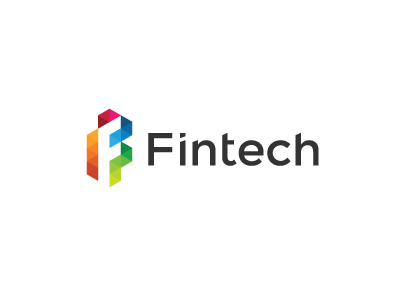
After years of building a strong consumer base and attracting increasing investment, fintechs have reached a crossroads. Mohamed Dabo had a conversation with Visa’s Jill Docherty about the industry’s profitability challenge.
It seems the sector that has upended everything in finance is itself in need of change to adapt to new expectations. According to Docherty, head of Business Development at Visa, fintechs are now at the stage where they need to prove they can scale into profitability.
Fintechs have developed a great reputation for consumer experience and many have become well-known brands that are now looking to compete internationally.
“In fact, many fintechs we speak to are showing interest in leveraging our international reach and scale to launch in new markets and widen their consumer base,” she said.
Docherty believes Fintechs will now likely be looking to evolve from start-ups focused on customer acquisition and brand building to businesses with sustainable income and revenue growth.
The road ahead in 2020
How well do you really know your competitors?
Access the most comprehensive Company Profiles on the market, powered by GlobalData. Save hours of research. Gain competitive edge.

Thank you!
Your download email will arrive shortly
Not ready to buy yet? Download a free sample
We are confident about the unique quality of our Company Profiles. However, we want you to make the most beneficial decision for your business, so we offer a free sample that you can download by submitting the below form
By GlobalDataDocherty sees 2020 as the year when established fintechs will want to progress their position – shifting from industry disruptors to profitable businesses.
“This will be driven by pressure from investors who, eventually, will expect hard, bottom line results. Fintechs reaching the end of three to five years venture capital funding cycles will be under the magnifying glass and expected to demonstrate profitability.”
While few would deny that the industry needs to change and is going to change, the form this change will take is open to debate. “How fintechs meet the challenge of scaling up will be interesting to see.”
Docherty predicts that some will be looking to diversify their offering as they look to find the profitability sweet spot. This could include moving into the credit space or launching products targeted at the business community.
Territorial expansion
“I think it is also likely that many challenger banks that have built a strong consumer base in the UK will be looking at geographical expansion, looking to take their products to countries where the market is less mature,” she said. “For example, we are working closely with Revolut to support their international expansion ambitions as they look to launch in many more markets over the next year.”
Regulatory hurdles
She points to regulation as one of the hurdles fintechs will face as they look to achieve scale.
“By virtue of their success, many fintechs are seeing increasing levels of regulatory scrutiny. We are likely to see challenger banks invest in compliance processes and look for strategic partners that strengthen their resilience without having a negative impact on the consumer experience.”
Artificial intelligence
Docherty expects to see increasing adoption of artificial intelligence by both challengers and incumbents.
“Whilst AI software is already being used to power chatbots and support customer service operations, we’re seeing increasing interest from our clients and partners to explore AI for fraud prevention.
“We know the potential for AI is huge as our AI driven fraud prevention solutions have already helped financial institutions prevent an estimated $25 billion in annual fraud across the Visa payment network.”
Sectors that are ripe for change
Docherty believes the credit space remains ripe for disruption, and that new overdraft rules and regulation present an opportunity for neobanks and fintechs.
She argues that some are already ahead of the curve.
“For example, Tymit, the app-enabled instalment credit card start-up, allows its users to split payments and calculate charges before making a purchase. I believe this model, which allows customers to plan spending and spread the cost of purchase over three, six, 12 or 24 months, is likely to surge in popularity.”
She also points to more challengers looking to address pain points in small business banking bringing the digital first service that has transformed consumer banking into the SME space.
“As technology continues to transform entrepreneurship with the rise of the gig economy, freelancing and side-hustles, how businesses pay and be paid will need to evolve. We expect to see some exciting innovation in this space from both start-ups and established banks.”
Forces driving the change
Docherty sees three main drivers of innovation in this space: changing consumer behaviour, new technology, and regulation.
Consumer expectation of financial services continues to evolve. Consumers increasingly demand the seamless, personalised and intuitive experience they have come to expect from big technology players and super apps from their banking and financial service providers.
“To meet this demand, the industry is having to adapt and adopt new technologies to solve consumer pain points.”
Technology also continues to move fast. Whilst concepts like AI, 5G and blockchain seem to be industry buzzwords that have been around for years, “we are seeing the industry increasingly embrace them to create new products and solutions that make it easier, safer and more convenient for individuals and businesses to manage their finances.”
Finally, regulators expect technology and the power of digital transformation to serve the consumer. In Europe, regulation has been a key driver of innovation forcing providers to adapt change.
“We see this with Open Banking, which should give consumers more choice, more visibility, more control. For the first time we will be able to see all of our financial lives in one place and can make more informed choices about how we manage them.”
Bumps along the way
Scaling up is a challenge for any start-up and this is more evident in the banking space where customer acquisition can be costly and competition is fierce.
“It is well documented how hard it is to change consumer habits when it comes to banking so fintechs will have to explore opportunities to generate revenue be it through new products or by reaching new customers in new markets.”
Again, how fintechs navigate the regulatory environment will be key, Docherty added.
Challengers who have built a strong customer base will need to continuously prove their operational resilience and robustness as well as their ability to adapt to new regulation.
Big data to the rescue
“As consumers demand more personalised services, I expect we will see banks and financial providers use big data to improve their customer offering.”
These can include using data to understand consumer behaviour to help prevent fraud or even offering specific services and benefits based on a consumer’s spending patterns.
With data holding the key to best practice personalisation and consumers increasingly recognising the value of their data, providers need to be careful and diligent when it comes the use of big data.







